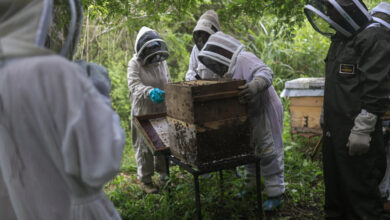Parentification: Should Children Assume Adult Responsibilities?
Parentification is when parents rely on their children in a way that can be overwhelming and inappropriate for their age.

The Woman Post | Carolina Rodríguez Monclou
Listen to this article
Read more content like this at: thewomanpost.com
In dysfunctional families where the roles and responsibilities at home are not well established, it's common to see children cooking, cleaning, getting their younger siblings to school, and feeling overwhelmed by house chores and caregiving tasks. Here is a list of things that children should not feel responsible for.
1. Mediating conflict between parents: According to E. Mark Cummings, Professor of Psychology at the University of Notre Dame, a 6-month child can detect a parent's distress. Parents fighting can negatively affect children's psychological, social, and emotional development. Parents should be mindful when having arguments in front of their children because this could severely affect their mental health and well-being. On the other hand, if parents argue in a balanced and emotionally uncharged way, this could teach children how to overcome conflict. Home is a training ground for life.
2. Raising their siblings: In 1973, Boszormenyi-Nagy & Spark created parentification to refer to when a child takes on adult roles and responsibilities. When kids are given responsibility beyond their level of ability and comprehension, this could be overwhelming and damaging. Actions such as paying the bills, cooking for siblings, getting their siblings ready for school, or booking medical appointments are not the responsibilities of a child. Aude Henin, Co-Director, MGH Child Cognitive-Behavioral Therapy Program, clarified that not all the duties assigned to children are parentification. Henin suggests considering when giving a child a task: Whose needs are being met? And, Is it age-appropriate to do that task?
3. Regulating a parent's emotions: There is also a term called emotional parentification, which refers to when a kid feels responsible for the emotional needs of their parents or the adults that surround them. According to Cicchetti & Toth, these children are more likely to get involved when they grow up in relationships with someone who requires caring. A child should feel supported by their parents and be able to share their emotions with them without feeling like a burden.
Also read: Let's Talk About Positive Parenting
4. Protecting the family image: Sometimes, parents don't accept their children as they are because they are afraid they'll ruin the family image. This happens especially when the child shows interest in things not traditionally taken for their gender. Being open-minded and empathetic should be a priority for parents when it comes to accepting and loving their children as they are.
5. Fulfilling a parent's unmet needs is expected when one's partner does not meet a spouse's emotional needs. For example, the husband doesn't have time to listen to his wife's worries because he comes home too tired from work and falls asleep very fast. Consequently, the wife starts discussing her feelings and concerns with her son or daughter. This could make a child become a people pleaser in the future.
6. Being their parent's therapist: Some parents think their children are "too mature for their age" and use this way of thinking as an excuse to share the problems that could seriously affect their peace and well-being. If parents feel that they aren't able to handle their own emotions, they should hire their therapist instead of burning their children with their problems.




